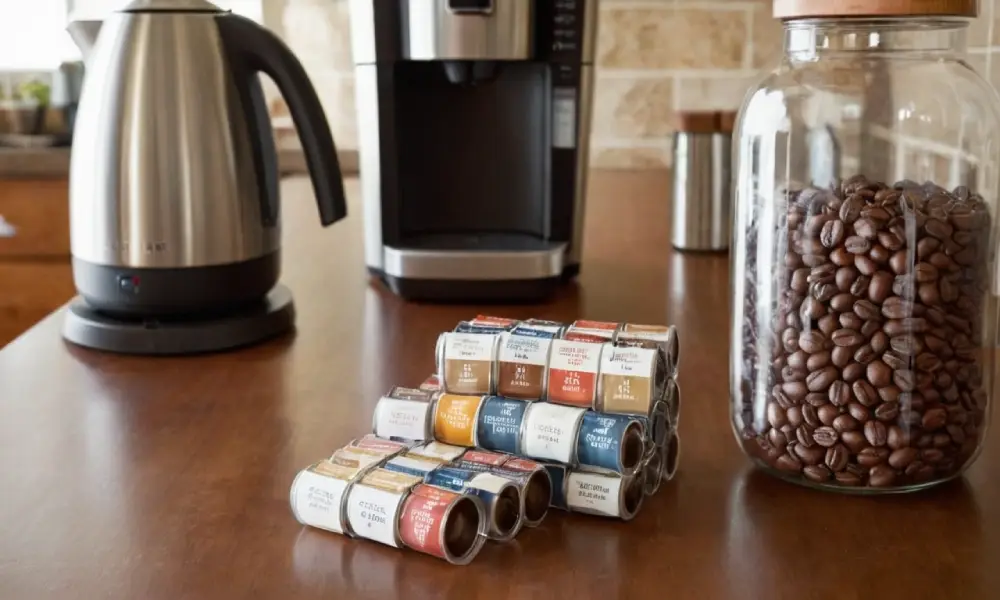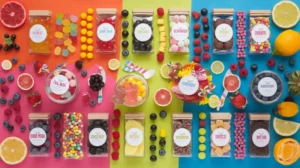Coffee pods are the modern-day solution to instant gratification.
With a simple press of a button, you get a steaming cup of coffee. But as you glance at the stash of pods you’ve been hoarding, a question arises: Do coffee pods expire?
The answer is both simple and nuanced. Let’s dive in.

Do Coffee Pods Have an Expiration Date?
Yes, coffee pods come with an expiration or “best before” date.
However, this date is more about peak quality than safety. Unlike perishable foods, coffee pods are shelf-stable and don’t “spoil” in the traditional sense. Here’s what you’ll typically find:
| Label | What It Means |
|---|---|
| Best Before | Optimal flavor and aroma until this date. |
| Manufacture Date | When the coffee pod was produced. |
| Sell-By Date | For retailer guidance, not consumer use. |
Your coffee pods won’t turn into a biohazard past their best-before date. So, breathe easy if you’ve brewed a pod that’s a little “vintage.”
What Happens After the Best-By Date?
After the best-by date, coffee pods begin to lose:
- Flavor: The coffee may taste flat or stale.
- Aroma: That enticing smell of freshly brewed coffee diminishes.
- Quality: The oils and compounds in the coffee degrade over time.
However, the coffee remains safe to consume unless the pod is damaged.
Think of it like stale biscuits—not ideal, but not a health risk either (although nobody likes sad biscuits).
Why Don’t Coffee Pods Expire Like Fresh Coffee?
The secret lies in their design:
- Vacuum Sealing: Coffee pods are tightly sealed to prevent exposure to air, the nemesis of fresh coffee.
- Nitrogen Flushing: Pods are often flushed with nitrogen, replacing oxygen to preserve freshness.
- Single-Serve Packaging: Minimizes contamination from external factors like moisture or light.

Signs Your Coffee Pod Might Be Past Its Prime
If you’re unsure about the state of your pods, look for these telltale signs:
- Faded Aroma: No inviting coffee smell when you open the pod.
- Flat Flavor: Tastes more like hot water with a hint of disappointment.
- Damaged Pods: Any punctures, leaks, or bulges? Bin it.
- Weird Appearance: If the coffee grounds look clumpy or moldy, it’s a no-go.
How to Store Coffee Pods for Maximum Freshness

Proper storage can significantly extend the life of your coffee pods. Here’s how to keep them fresh:
Dos:
- Cool, Dry Place: Store pods in a pantry or cupboard.
- Original Packaging: The box provides additional protection from light and moisture.
- Pod Organizer: Keeps them neatly arranged and avoids accidental crushing.
Don’ts:
- Refrigerate: The moisture in the fridge can compromise the pod’s seal.
- Expose to Sunlight: UV rays can degrade the coffee inside.
- Forget the Old Ones: Rotate your stock—oldest pods first!
Can Expired Coffee Pods Make You Sick?
Unlikely. As long as the pod remains sealed and undamaged, expired coffee pods are safe to use.
The worst that can happen is a less-than-stellar cup of coffee. But let’s face it, even mediocre coffee is better than no coffee, right? (Well, except maybe decaf—just kidding, decaf drinkers!)
Frequently Asked Questions
1. Can I Freeze Coffee Pods?
Not recommended. While freezing extends the life of ground coffee, the sealed environment of a pod doesn’t benefit from freezing and might actually cause condensation issues.
2. Do Different Brands Have Different Shelf Lives?
Yes! Premium brands may use better packaging, extending the shelf life. Always check the label for specifics.
3. What About Reusable Pods?
Reusable pods don’t expire, but the coffee grounds you use in them will. Store your coffee grounds properly to ensure freshness.
Bottom Line
Coffee pods do have a shelf life, but they’re designed to last. Proper storage can keep them fresh well past their best-by date, and even if they’re slightly stale, they’re still safe to use.
So, go ahead and enjoy that forgotten box of pods in the back of your cupboard. Just remember: life’s too short for bad coffee—unless it’s Monday morning and you’re out of options.



